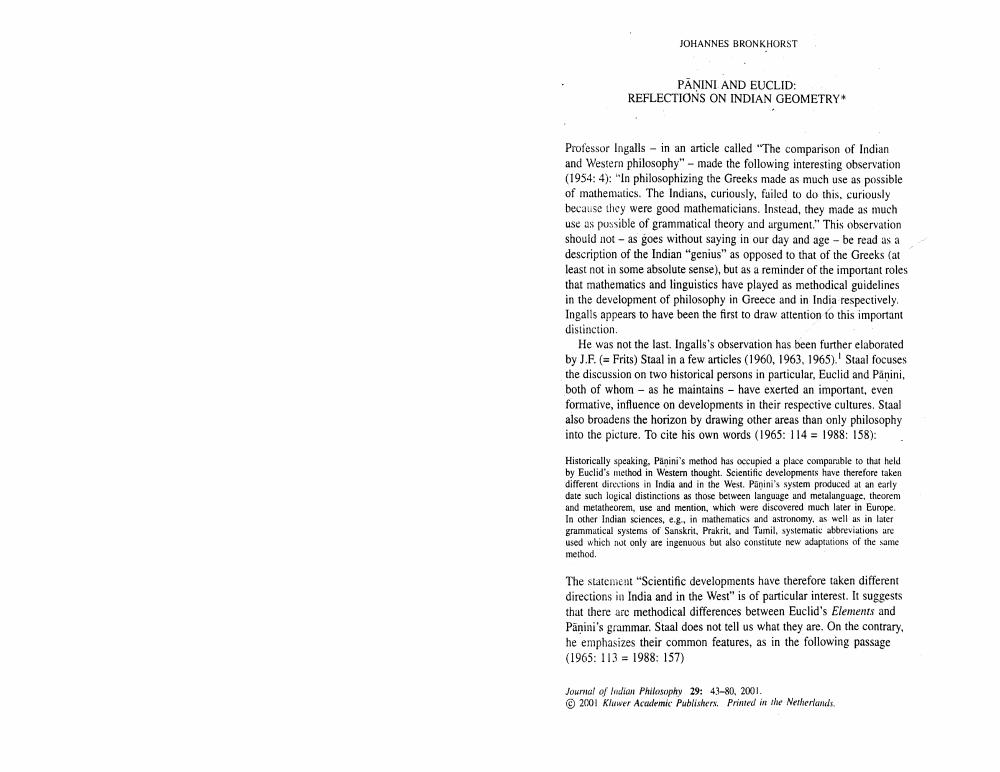Book Title: Panini And Euclid Reflections On Indian Geometry Author(s): Johannes Bronkhorst Publisher: Johannes Bronkhorst View full book textPage 1
________________ JOHANNES BRONKHORST PANINI AND EUCLID: REFLECTIONS ON INDIAN GEOMETRY* Professor Ingalls - in an article called "The comparison of Indian and Western philosophy" - made the following interesting observation (1954: 4): "In philosophizing the Greeks made as much use as possible of mathematics. The Indians, curiously, failed to do this, curiously because they were good mathematicians. Instead, they made as much. use as possible of grammatical theory and argument." This observation should not as goes without saying in our day and age be read as a description of the Indian "genius" as opposed to that of the Greeks (at least not in some absolute sense), but as a reminder of the important roles that mathematics and linguistics have played as methodical guidelines in the development of philosophy in Greece and in India respectively. Ingalls appears to have been the first to draw attention to this important distinction. He was not the last. Ingalls's observation has been further elaborated by J.F. (= Frits) Staal in a few articles (1960, 1963, 1965).' Staal focuses the discussion on two historical persons in particular, Euclid and Panini, both of whom as he maintains have exerted an important, even formative, influence on developments in their respective cultures. Staal also broadens the horizon by drawing other areas than only philosophy into the picture. To cite his own words (1965: 114 = 1988: 158): Historically speaking, Panini's method has occupied a place comparable to that held by Euclid's method in Western thought. Scientific developments have therefore taken different directions in India and in the West. Panini's system produced at an early date such logical distinctions as those between language and metalanguage, theorem and metatheorem, use and mention, which were discovered much later in Europe. In other Indian sciences, e.g, in mathematics and astronomy, as well as in later grammatical systems of Sanskrit, Prakrit, and Tamil, systematic abbreviations are used which not only are ingenuous but also constitute new adaptations of the same method. The statement "Scientific developments have therefore taken different directions in India and in the West" is of particular interest. It suggests that there are methodical differences between Euclid's Elements and Panini's grammar. Staal does not tell us what they are. On the contrary, he emphasizes their common features, as in the following passage (1965: 113 1988: 157) Journal of Indian Philosophy 29: 43-80, 2001. ©2001 Kluwer Academic Publishers. Printed in the Netherlands.Page Navigation
1 2 3 4 5 6 7 8 9 10 11 12 ... 20
